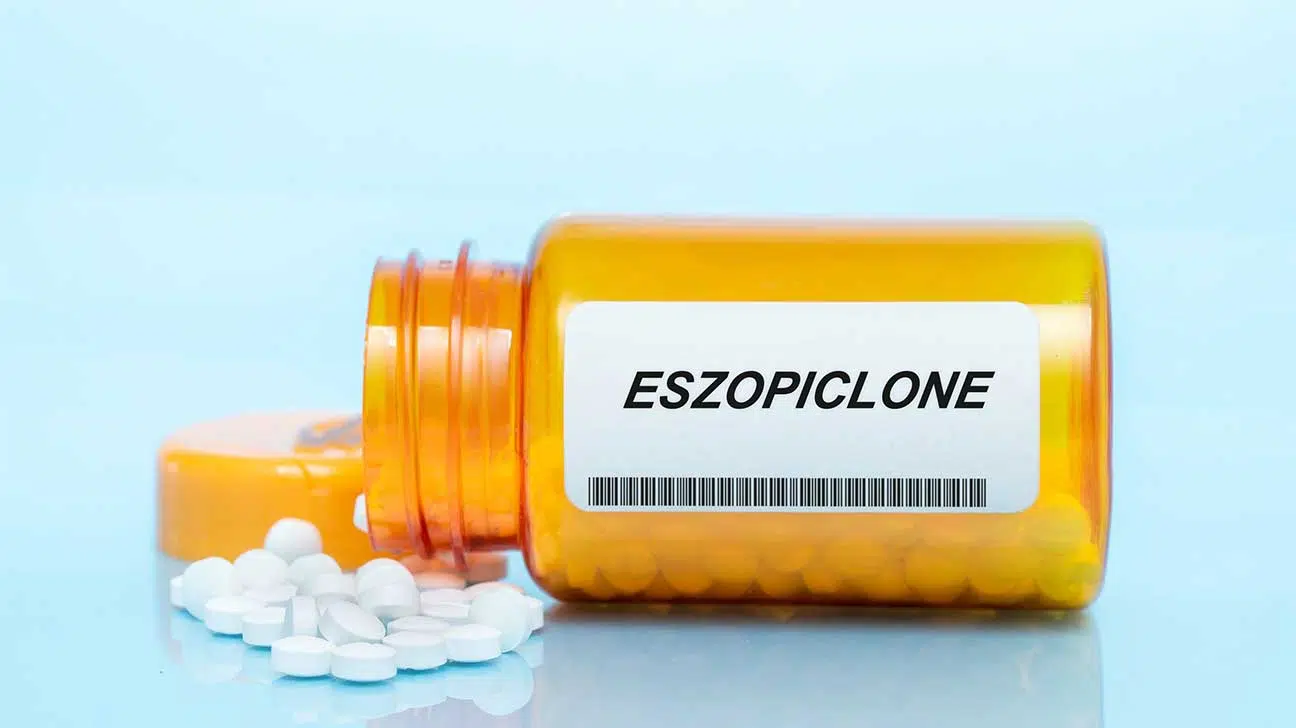
Yes, eszopiclone (Lunesta) is a C-IV controlled substance according to the Drug Enforcement Administration (DEA).
Despite this regulation, Lunesta has shown success in clinical trials for the treatment of chronic insomnia.
This medication belongs to a class of drugs called sedative-hypnotics which affect the central nervous system (CNS).
Sedative-hypnotics slow down cognitive activity, allowing the brain to enter into its rest phase. While Lunesta is not controlled, it can be misused.
Why Lunesta Is A Schedule IV Controlled Substance
Lunesta (eszopiclone) is a controlled substance because it has the potential to be abused or lead to dependence.
Lunesta works by binding to receptors in the brain that are responsible for inducing sleep. When taken as prescribed, Lunesta is safe and effective.
However, because it can cause drowsiness and impair judgment, it can be abused.
Potential For Abuse
People who abuse sleep aids like Lunesta may take higher doses than prescribed or take it for reasons other than insomnia.
The side effects of Lunesta abuse can lead to tolerance and, over time, Lunesta addiction.
The sedative qualities of Lunesta may be attractive to some people as taking the drug in conjunction with other substances, like opioids, can greatly boost the effects of both drugs.
Risk Of Physical Dependence
There is a risk of physical dependence when taking Lunesta, because it is a sedative-hypnotic medication.
When people take this type of medication for an extended period of time, they may develop a tolerance to it and need to take higher doses to achieve the same effect.
This can lead to physical dependence and withdrawal symptoms if the person stops taking the medication suddenly.
What Drug Class Is Lunesta?
Lunesta is a Class ‘C’ prescription medication that belongs to the Schedule IV class of controlled substances and is considered a sedative-hypnotic drug.
It is usually given to adults, as the Food and Drug Administration (FDA) has not yet found evidence for the efficacy of prescribing the drug to children.
How Lunesta Works In The Body
Lunesta produces sedative effects by interacting with the central nervous system and binding to a specific site on the GABA receptor.
This action leads to an increase in the amount of GABA inhibitors available in the brain, which in turn leads to a decrease in the activity of the central nervous system.
How Lunesta Compares With Ambien
Lunesta and Ambien are used to treat similar conditions, but the drugs work in different ways and have different side effects. Lunesta does, however, last longer than Ambien.
Some people find that Lunesta is more effective than Ambien, or other sleeping aids like Sonata (Zaleplon), while others find that Ambien is more effective.
Ambien Is A Controlled Substance
While both medications are considered safe when used as prescribed, both Lunesta and Ambien have potential for misuse and eventual addiction.
In general, more risks of misuse are seen with Ambien, which is why Ambien is a controlled substance, while Lunesta is not.
Lunesta Lasts Longer
The main differentiating factor between these two drugs in their treatment of insomnia is the disparity of their half-lives.
The half-life for Lunesta is about six hours, while Ambien’s half-life is approximately three hours.
Different Active Ingredients
The active ingredient in Lunesta is eszopiclone, while the active ingredient in Ambien is zolpidem.
Zolpidem is another insomnia-treating medication that can help to fix a number of sleep problems and sleep disorders.
Zolpidem is a shorter-acting drug than eszopiclone, meaning it is less likely to cause next-day drowsiness. Eszopiclone is also more potent, meaning a smaller dose is required for the same effect.
Signs Of A Lunesta Addiction
Like many medications, Lunesta has the potential for misuse and addiction.
Some signs of a potential Lunesta addiction may present themselves as:
- experiencing Lunesta withdrawal symptoms after ceasing use of the medication
- taking Lunesta for longer than advised per medication guides
- continuing to use the medication despite experiencing adverse effects
- ingesting Lunesta as a means to get high instead of using the drug to treat insomnia
Effects Of Abusing Lunesta
There are many serious side effects of abusing Lunesta that can be potentially life-threatening. Using Lunesta against the advice of healthcare professionals is considered unsafe.
Some of the common side effects associated with abusing Lunesta include:
- experiencing rebound insomnia
- extreme drowsiness
- liver disease
- memory loss
- sleepwalking
- chronic dry mouth
- suicidal thoughts
- worsening respiratory function
- aggressive behavior
- overdose death
- impairment of motor function, leading to unconsciousness and potential sleep-driving
Lunesta also has a list of black-labeled drug interactions.
Mixing the medication with other substances or supplements can induce allergic reactions and be potentially fatal.
Find A Treatment Program For Lunesta Abuse
If you or a loved one is in search of substance abuse treatment, call our free helpline today to discuss enrollment at a rehab facility near you.
Addiction Resource aims to provide only the most current, accurate information in regards to addiction and addiction treatment, which means we only reference the most credible sources available.
These include peer-reviewed journals, government entities and academic institutions, and leaders in addiction healthcare and advocacy. Learn more about how we safeguard our content by viewing our editorial policy.
- Food and Drug Administration (FDA)
https://www.accessdata.fda.gov/drugsatfda_docs/label/2014/021476s030lbl.pdf - Food and Drug Administration (FDA)
https://www.fda.gov/drugs/drug-safety-and-availability/fda-drug-safety-communication-fda-warns-next-day-impairment-sleep-aid-lunesta-eszopiclone-and-lowers


